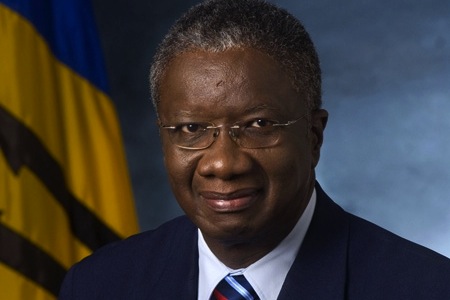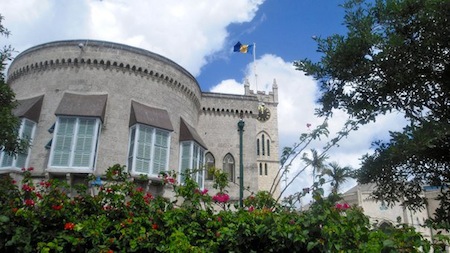It appears that Barbadian prime minister Freundel Stuart (pictured above) has avoided the fate of Grenada’s prime minister on Tuesday — the current count for elections to Barbados’s 30-member House of Assembly shows a provisional 16-13 lead for Stuart’s Democratic Labor Party (DLP), with one seat pending a recount.![]()
For much of the night, however, as returns came in, the DLP appeared to be tied with the Barbados Labour Party (BLP), which was hoping for a return to power under Owen Arthur, prime minister of Barbados from 1994 to 2008.
Arthur returned to frontline politics in 2010 to lead the BLP once again, but it appears that his efforts have turned up short, despite polls that showed him with a better than even chance to return to government. On Tuesday, former three-term prime minister Keith Mitchell swept back to power, his New National Party taking all 15 seats in the Grenadian lower house of parliament.
The DLP, which dates to 1955, and which was the party of Barbadian prime minister Errol Barrow, who governed the island nation in its first decade of independence, will have another five years in power.
The election is the first mandate for Stuart, however, who succeeded the late David Thompson as prime minister in October 2010 after Thompson died from pancreatic cancer. Though Stuart’s majority has been reduced from 20 seats to a razor-thin 16 seats, a majority is a majority.
Stuart, an attorney by trade, previously served as attorney-general and minister of home affairs prior to Thompson’s death.
The ‘Dems’ will now have an opportunity to revitalize Barbados’s economy from its current stagnant condition — and over the next five years, Stuart will face further battles with the International Monetary Fund over a potential debt package or a devaluation of the Barbadian currency.
The Caribbean Development Bank has identified Barbados, like Grenada, as one of seven countries with unsustainable debt levels.

